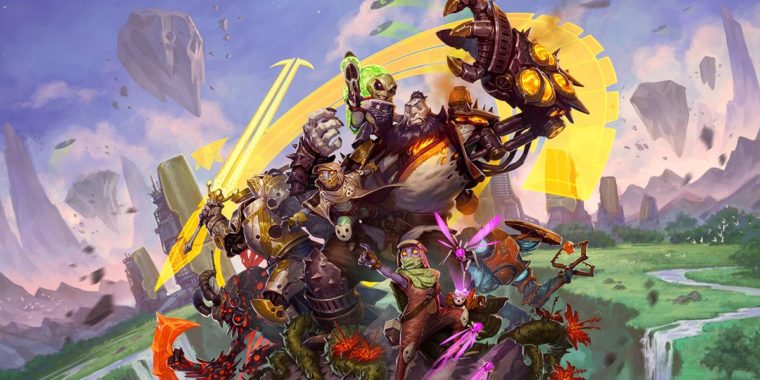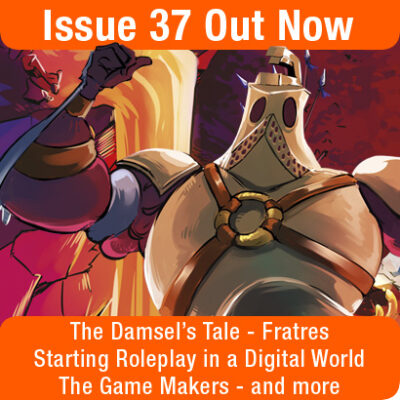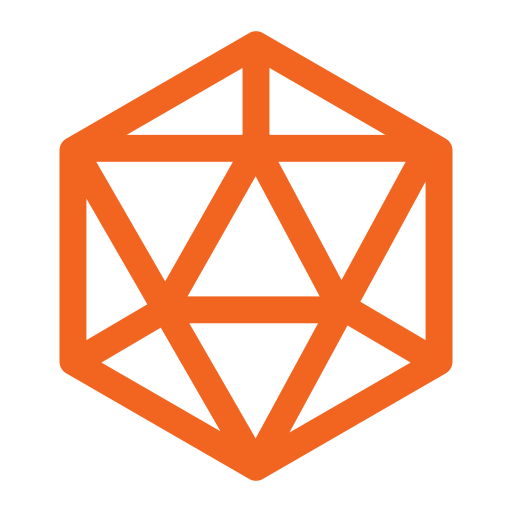One world, not in pieces, but made of them. Strangers thrown together suddenly, with the same goal, but in competition with each other. Alliances made, but perhaps not fully understood. Keys to forge, but is what they unlock worth it?
KeyForge is a competitive card game in which players take on the role of an Archon. As an Archon the player has three factions under their control, which they will use to collect Æmber and forge three keys. These keys unlock mysterious vaults on the world of Crucible, granting the winner incredible knowledge. It is designed by Richard Garfield and published by Fantasy Flight.
The game revolves around each players Archon deck. KeyForge, along with Discover: Lands Unknown, are the first two games in Fantasy Flight’s new Unique Game range. In the case of KeyForge, this means that each Archon deck is one-of-a-kind. No other player in the world with have one like it.
Not to say that each deck is entirely unique, and no two players won’t find any crossover. As I understand it, there are a finite number of cards in the KeyForge range. But each deck is made up of three factions, and a selection of cards from within that faction. Along with an individualised name for the Archon who the deck belongs too, which appears on the back of every card.
During each turn players choose one of the factions in their deck. They can then play cards from their hand that correspond with this faction, as well as activate those cards already in play from the nominated faction. Cards have a broad range of effects, some of which are resolved when they come into play, while others are utilised through being activated or fulfilling certain criteria.
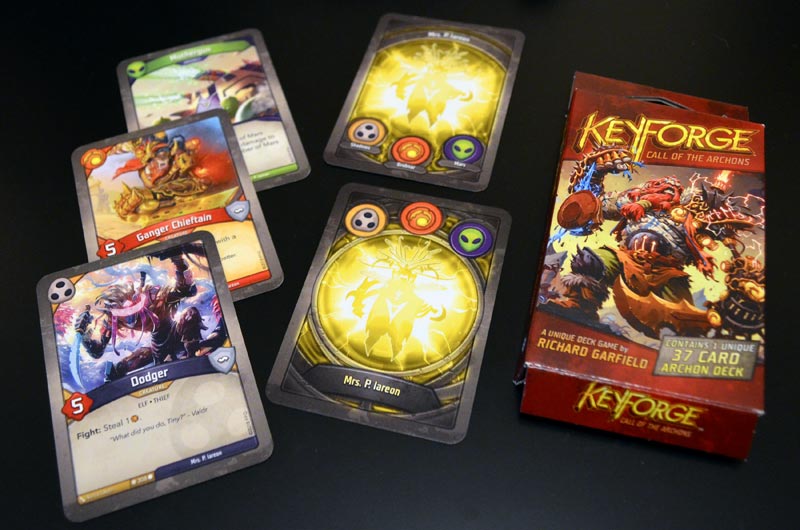
As the turns unfold players will accrue Æmber. Starting a turn with at least six pieces of Æmber allows a player to craft a key. Some cards in play may increase, or decrease, the Æmber total needed to successfully bring a key into existence. Once a player has created a third key the game immediately ends, and the player with three keys is the victor.
And this is basically all there is to KeyForge. The complexity is introduced through the Archon decks themselves, as each card will provide the specific rules that it brings to the game. Some will utilise generic effects, like Chained or Stun, but by-and-large every card is its own tiny rule book.
What KeyForge appears to be doing is removing the deck building element from this style of game while not relegating every player to the same set of cards. Especially when contrasted with something like Magic: The Gathering, where being able to mix and match cards allows for certain card combinations to be discovered and replicated ad nauseam across the player base, KeyForge is offering a comparable experience with an almost zero percent chance of game breaking card combinations.
It puts the focus back on the player’s knowledge and skill. The game becomes about the players understanding of their deck, being familiar with the cards in it and how they play, and using this to both build their keys and hobble their opponent. Rather than the game becoming about what decks can be built prior to play, and thus determining much of the experience before the players have even sat down opposite each other.
This is a Fantasy Flight production, so it goes without saying that the artwork is varied, exciting and really well executed. So too the iconography is well thought out and easy to understand, even from a distance as cards sit on the play area. The cards are well made, and look and feel really nice. And if you invest in the starter pack the associated tokens and other paraphernalia is also of great quality.
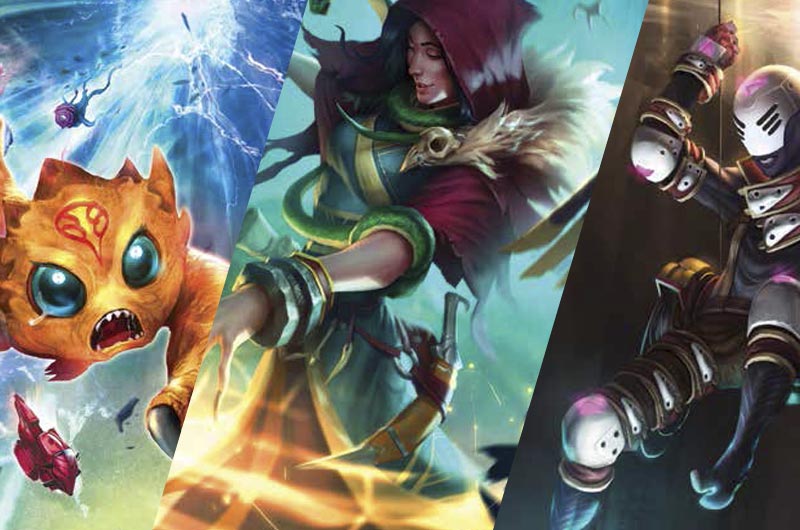
With an endeavour the scale and complexity of KeyForge there were bound to be some hiccups. While overall the graphic design is really good some of the card types look, at a glance, quite similar. This doesn’t really effect game play, but players are supposed to play certain card types to certain areas. So there could stand to be some more clarity in that aspect.
Of course the main question, and biggest concern, has been about the unique decks aspect. At the moment no game breaking decks have been reported. Though some decks have been recalled for having inappropriate names. Each Archon deck name is created by an algorithm, pulling from a database of tens of thousands of words. So while questionable names were bound to appear, why were some of the more obvious words flagged even entered in the first place?
Even taking that into account, I have really enjoyed KeyForge. It focuses on the parts of games I like, understanding the mechanics and playing combinations, rather than just being about steamrolling your opponent. Because of the unique Archon deck system it is easy to learn, and mastering it depends entirely on the player understanding their decks and implementing strategies.
As someone who has liked the idea of other 1v1 competitive card games, but has never had the time or inclination to dedicate a portion of my life to it, KeyForge offers the best of both worlds. An individualised experience for each player, with the security of a stand-alone title. In the case of KeyForge, it really is up to the player just how far into the game they want to go. But whatever decision they make, they will remain equally as competitive as any other player in the world.
KeyForge is out now. You can purchase it online or from good local game stores. The KeyForge Master Vault is now online, where players can register their Archon decks.


